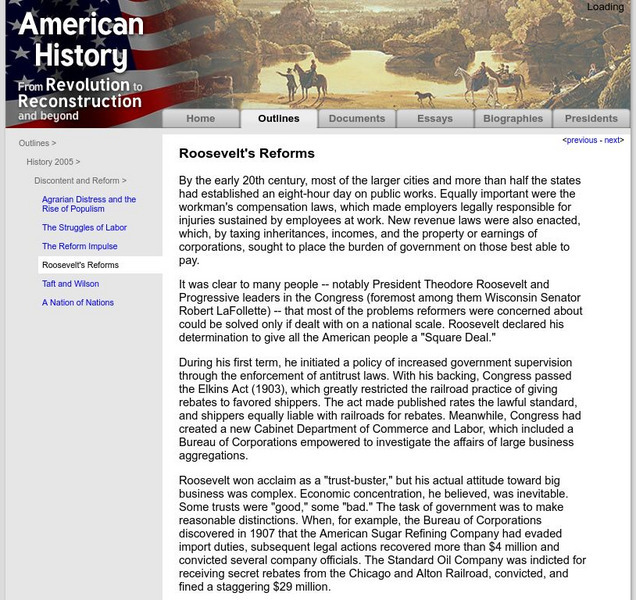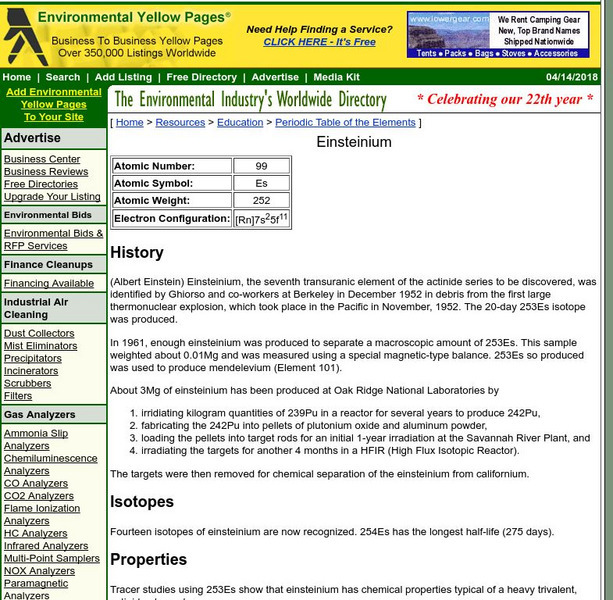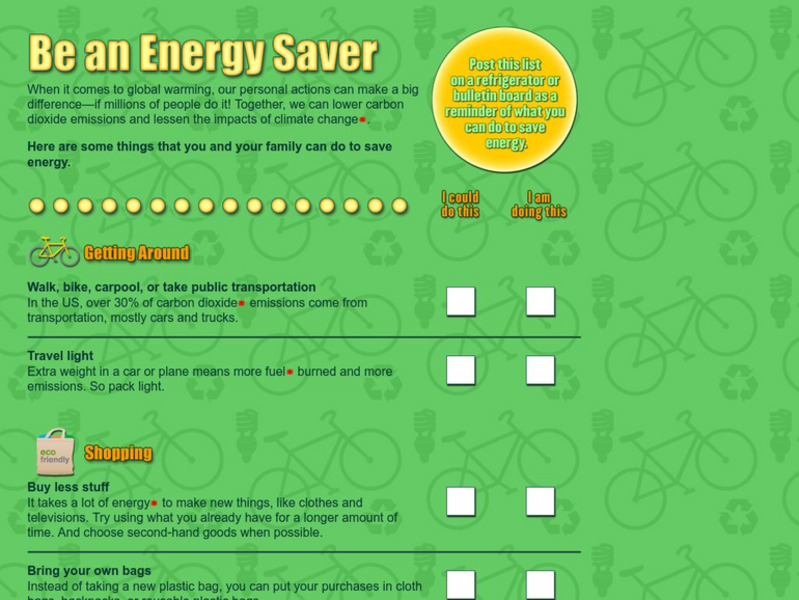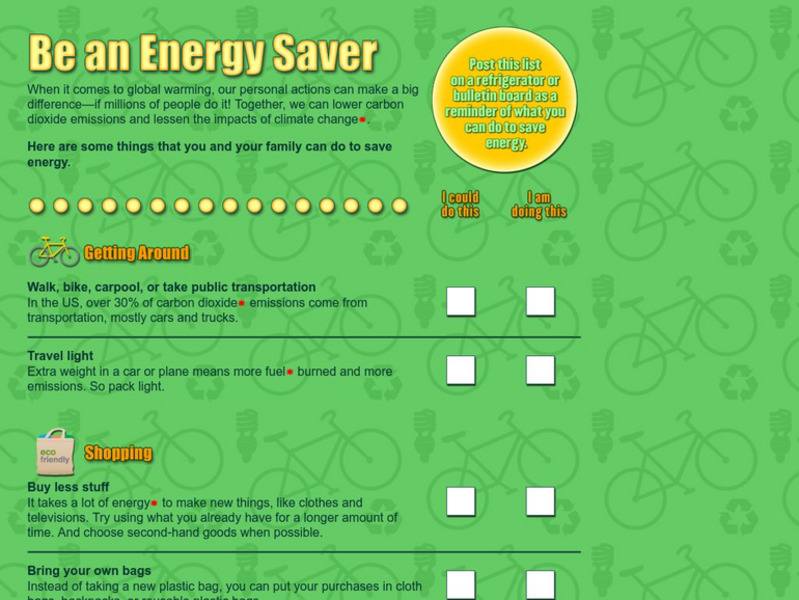Smithsonian Institution
Smithsonian Environmental Research Center: Forces of Change:el Nino
As the Western Pacific Ocean warms weather changes around the world. This interactive site provides information about El Nino, including what it is, its history and the power of its reach around the world.
Wikimedia
Wikipedia: Mediterranean Sea
Information on the Mediterranean Sea - its history, geography, geology, climate, ecology and environmental history.
Library of Congress
Loc: Explorations in American Environmental History
These lessons introduce students to historical perspectives of nature and the environment, drawing on the American Memory collections, other digital resources, readings, and writing exercises. Students examine materials in a variety of...
University of North Carolina
University of North Carolina: History of Biotechnology in North Carolina
The biotechnology industry is comprised of all organizations involved in the development, manufacturing, or marketing of products that are based on bio-molecular research. The industry is closely aligned with the research and development...
Smithsonian Institution
National Museum of Natural History: Does Our Background Shape Our Thinking About Environmental Issues? [Pdf]
A lesson where young scholars explore the positive and negative impacts of human activities on the environment today and in the distant past, and examine how attitudes towards the environment might be shaped by one's experiences growing...
Smithsonian Institution
National Museum of American History: Three Mile Island the Inside Story
This Web site was created to provide more information about the Three Mile Island nuclear power plant; about the course of the accident there; about the steps?extending over almost 15 years?through which the nature and extent of the...
American Museum of Natural History
American Museum of Natural History: O Logy: What's the Big Idea? Climate Change
What do people around the world need to do in order to slow the process of climate change? This resource dives into the dangers of change and proposes solutions.
Annenberg Foundation
Annenberg Learner: Bridging World History: Global Industrialization
Europe and America were far from alone in the quest for industrialization. This unit explores just how far the age of industry impacted the world.
Smithsonian Institution
Smithsonian Environmental Research Center: Arctic: A Friend Acting Strangely
Discover the devastating effects of climate change on an Inuit Arctic community in northern Canada. The melting sea ice caused by global warning has started a chain reaction of many changes in the culture and survivability in the Arctic...
University of Groningen
American History: Outlines: Roosevelt's Reforms
Article outlines the sweeping social, economic, and environmental reforms imposed by President Theodore Roosevelt during the early 20th Centruy Progressive Era.
Siteseen
Siteseen: American Historama: Us Environmental Protection Agency (Epa)
Discover detailed facts and information about the goals, purpose and function, and the history and origins of the Environmental Protection Agency (EPA).
Michigan State University
Michigan State University: Environmental Health & Safety: Ernest Rutherford
A clear telling of Rutherford's place in the history of human understanding of radiation.
Travel Document Systems
Tds: The Gambia: History
Read through this graphic about the geography of Gambia, the smallest nation in Africa, to find out its area, natural resources, and environmental concerns, among other information. From CIA World Fact Book.
Other
Modern World History: Introduction to the Industrial Revolution
The Industrial Revolution was the most profound historical event with consequences that changed every aspect of our society. Urbanization, environmental issues, social issues, and migration are just a few areas that changed as a result...
Khan Academy
Khan Academy: Us History: 1491 1607: Environmental/health Effects in New World
European arrival in the Americas decimated both indigenous people and previously-flourishing ecosystems.
TED Talks
Ted: Ted Ed: Anupam Mishra: The Ancient Ingenuity of Water Harvesting
Video lesson shares information about water harvesting structures used in India today. Anupam Mishra talks about the superiority of these structures built by the people of India's Golden Desert centuries ago compared to modern water...
A&E Television
History.com: 7 Negative Effects of the Industrial Revolution
While the Industrial Revolution generated new opportunities and economic growth, it also introduced pollution and acute hardships for workers.
Other
Center for Columbia River History: Promoting the Study of Columbia River
The Center for Columbia River History contains information about a river that spans seven states and a territory in Canada. Understand the environmental factors that contribute to this river.
Hartford Web Publishing
World History Archives: Arctic Climate Changing Rapidly
This article from the Environmental News Service gives evidence of global warming in the Arctic region.
Other
Environmental Yellow Pages: Elemental Einsteinium
The history, isotopes, and properties of the element Einsteinium are discussed on this site. Also listed is the atomic weight, atomic number, atomic symbol, and electron configuration.
Alabama Humanities Foundation
Encyclopedia of Alabama: History: William Bartram
Biographical profile makes note of the life and career of environmental literature author, William Bartram.
PBS
Pbs: Nature: Cuba: The Accidental Eden
You can watch this fascinating video about Cuba, a country that was restricted politically and economically for the past 50 years. Due to the restriction of tourists, Cuba has remained open to wildlife, and a wonderful and beautiful...
American Museum of Natural History
American Museum of Natural History: O Logy: Stuff to Do: Be an Energy Saver
Find out what you can do to be an energy saver and help slow global warming.
American Museum of Natural History
American Museum of Natural History: O Logy: Stuff to Do: Be an Energy Saver
Find out what you can do to be an energy saver and help slow global warming.
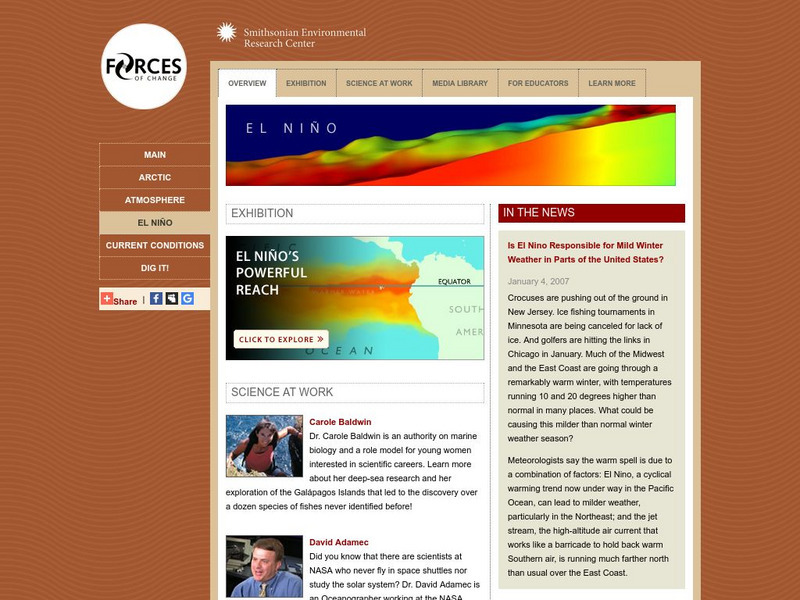


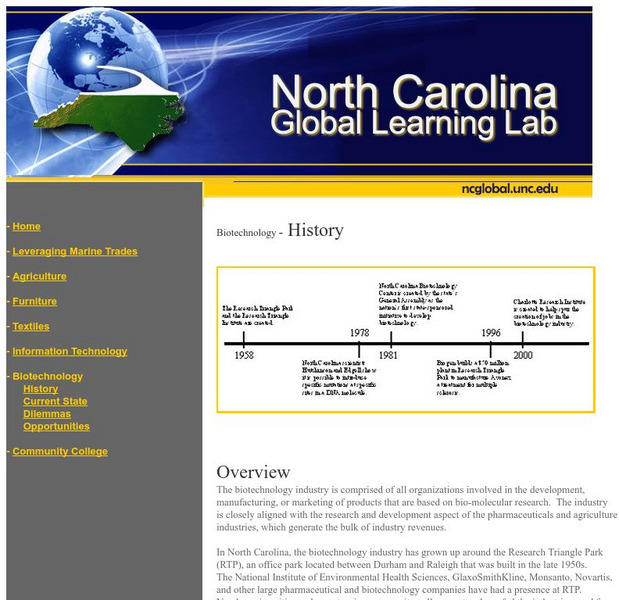
![National Museum of Natural History: Does Our Background Shape Our Thinking About Environmental Issues? [Pdf] Lesson Plan National Museum of Natural History: Does Our Background Shape Our Thinking About Environmental Issues? [Pdf] Lesson Plan](https://d15y2dacu3jp90.cloudfront.net/images/attachment_defaults/resource/large/FPO-knovation.png)


